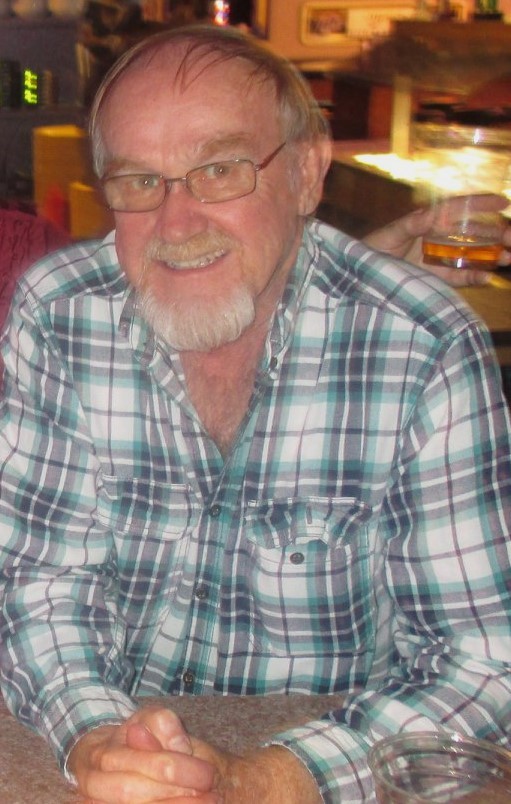
By Susan Dempsey April, 2024
Robert is one of my more than thirty first cousins on my mom’s side of the family. We lost him recently to severe COPD, after years of his suffering with breathing issues. I’ve paused to think about him, his place in the family now vacant, and to ponder our brief time on Earth often since that day.
Our moms were sisters who grew up on a dairy farm in central Wisconsin. One of 11 siblings, my Aunt Viola worked alongside her sisters and brothers before marrying Uncle Clarence and establishing their own dairy farm. They reared four children while working every day to provide for them through farming. Robert was their youngest son.
I remember the York farm from visits to Adams County when I was young. We usually stayed with Grandpa and Grandma, but we often visited relatives nearby. Uncle Clarence and Aunt Vi had an extensive dairy operation. I remember walking into the dairy barn during milking. I was fascinated with the machines and how they pumped fresh milk from udders to the milk house before having it transported to the local dairy. The black and white dairy cows were huge animals from whom I shied away, even though I still catch myself saying “moo” to one whenever I pass one by.
The farmers in our family were always busy, and they couldn’t take extended breaks or vacations easily. I remember them all getting up and leaving wedding receptions as soon as dinner was over, to go home and milk cows, returning for the dancing later in the evening.
Being a city kid, I marveled at the opportunity as well as the ability many of my country cousins had to drive tractors and other machinery at a young age. Robert was one of those. His work on the farm was mostly out in the fields, driving a tractor, working to produce corn and hay to feed their stock. Now that I own a small hobby farm of my own, complete with a couple old Ford tractors, I appreciate that even more. While I’ve driven one of our tractors in circles around an empty field, I couldn’t claim any expertise at all.
Robert was the expert. After Uncle Clarence and Aunt Vi retired from farming and sold their spread, Robert applied his abilities to a career working for the county on road projects and plowing snow. He operated various types of equipment, drawing from his experience on the farm.
Robert, like his father, was a man of few words. But when he spoke—softly, not in a gregarious way–his voice pulled you into the conversation. He’d hit you with his wit when you least expected it, even though his tell-tale sly grin would hint at the joke to follow. And he had a way of teasing his sisters and cousins in a low-key yet sharp way that could keep us on our toes. I heard he could play jokes on co-workers and others that proved he possessed a shrewd sense of humor: pulling bottles of beer out of snowbanks during work breaks or messing with impatient drivers around construction zones.
I recall he disliked cities, the bigger the “badder.” The few times he visited our city, you could see he was antsy to hit the road headed home as soon as the opportunity arose. He enjoyed the company of friends and family, but crowds were not his thing. One would think someone who worked on road construction would be acclimated to traffic, but I believe it pushed him to the opposite end. Traffic, congestion, noise and bright lights were something Robert avoided when he could. I believe the time he spent alone, perched atop a tractor seat with his own thoughts to keep him company were times he found solace. He likely sought that solace when he lost his brother, then mom and dad, or at other times life wasn’t kind.
I called him Robert my whole life. I know some later called him Rob or even Bob, but he was always Robert to me. It fit him best; a somewhat serious guy whose name was important to remember, just as he is important to us. His stature didn’t reflect the size of his heart. The empty space in our family tree will forever be hallowed, as that branch has lost its leaves yet will never lose its owner’s name. He will forever be the cousin, uncle, brother, father and grandfather of many who love him and who will always see him as the grandson, and the son of a farmer.
I imagine a sandy tractor trail leading up to a large cattle gate at the top of a hill, and a man in a baseball cap driving his John Deere tractor through it. He’s silhouetted by a bright light ahead, and there are several farmers in their pinstriped overalls and hats standing on the other side of the gate, along the road waiting to greet him. Next to them are women holding platters of food. There are also men who look more his age, waiting to shake his hand. They all wear warm smiles of welcome. You know who they are. They’re smiling because they know he’s where he can ride his tractor over fields of golden corn that need no hauling and waving grasses that don’t need mowing. Robert, the son, is once again in the arms of the farmer. He is home.

